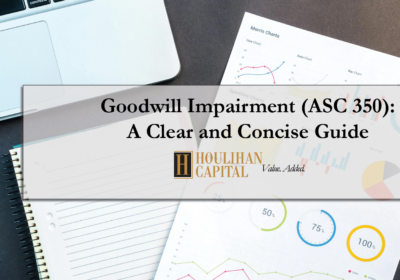The Financial Accounting Standards Board Accounting Standards Codification (FASB ASC) defines fair value, or Topic ASC 820, as the “amount that would be received in an orderly transaction using market participant assumptions at the measurement date”. The uncertainty associated with COVD-19 and the actions taken to reduce the spread of the virus have caused extreme volatility in the public market. The pandemic has caused places across the world to shelter in place and the unemployment rate to drastically increase. During these uncertain times, investment companies need to make informed judgments as they estimate and report fair values of non-traded and infrequently traded investments to their investors.
We are in an environment where fair values will be heavily scrutinized. With increasing uncertainty, significant market volatility, and the overall uncertain economic impact of COVID-19, it is difficult to apply judgment in determining fair value. Most investors/LPs will be interested in the process and methodology – all the more reason to be thoughtful and detailed. It is imperative to document assumptions utilized, the rationale for using them, and to maintain a consistent approach with prior periods.
It is important to objectively consider the impact and uncertainty of COVID-19 when estimating the fair value of private investments as of March 31, 2020 and June 30, 2020. The macro environment and investment-specific value drivers should be considered when estimating fair value for a specific investment. These include, but are not limited to:
-
-
- The impact on the value of a specific investment should reflect a market participant’s consideration of uncertainty in the macro environment.
-
-
-
- Public market volatility indicates uncertainty, which may or may not be a reasonable benchmark with respect to specific non-traded or infrequently traded investment. Uncertainty may differ by geographic region, industry, or other factors.
-
-
-
- Individual investments should have consideration given to the short-, medium-, and long-term impacts of the pandemic. Also, performance should be compared to the prior quarters and years and future expectations.
-
-
-
- Projections should be as up to date as possible and should not double count the uncertainty, i.e. if projections are updated an increase in alpha may not be appropriate.
-
-
-
- Market participant viewpoint should be considered.
-
-
-
- All judgments should be clearly documented to support the fair value conclusions.
-
During these uncertain times, estimating fair value requires increased consideration of individual facts and circumstances amidst a rapidly changing macro environment. It is important to follow robust established valuation processes. Further, following the concepts outlined in the AICPA’s Valuation Portfolio Company Investments of Venture Capital and Private Equity Funds and Other Investment Companies (which provides examples and answers to questions to help investment companies in making informed judgments when estimating fair values), will help demonstrate the reasonableness of the judgments used in estimating fair value at all valuation dates.
Houlihan Capital can help with the process of determining fair value of your illiquid investments. The firm has extensive experience in providing objective, independent and defensible opinions of value that meet accounting and regulatory requirements. Houlihan Capital is SOC-compliant, a Financial Industry Regulatory Authority (FINRA) and SIPC member and committed to the highest levels of professional ethics and standards.
For more information, please contact: info@houlihancapital.com
To view our PDF version, click the button below:


